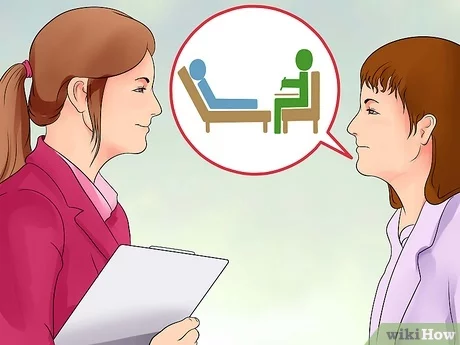There are many articles and information on why seeing an experienced therapist is the best option. This is even a concept I was taught in some of my college classes. However, there are benefits to seeing a less experienced therapist.
The first benefit is overall cost. Going to an experienced therapist can be costly. Many community based practices employ interns (individuals who are getting a degree, or just graduated with a Masters) and midlevel practitioners in order to provide services for an extremely discounted price. Therefore, if money is tight, but you are struggling with your mental health, seeing a less experienced therapist may be the option for you. You will still get quality care, as all interns work alongside an experienced, fully licensed therapist to provide the highest quality care.
Working with a mid-level practitioner, such as a CSW, really means you are getting two therapists for the price of one. Student interns/new therapists work alongside an experienced therapist, which is referred to as supervision. Clinical supervision is part of every therapist’s training and is different from the general kind of supervision we all get at a job. A therapist’s clinical supervisor is more like a mentor or teacher than a manager or boss. Clinical supervisors are licensed therapists who help trainee therapists gain the skills they need to be effective therapists. Supervisors talk to their supervisees about the work they’re doing with their clients and give them feedback and guidance that helps them grow and improve. Trainee therapists usually get one hour of face-to-face clinical supervision every week. These sessions sometimes feel like lessons, sometimes feel like training sessions, and sometimes even feel like therapy. Clinical supervisors help their supervisees:
- Assess complex cases;
- Develop treatment plans;
- Make complex ethical decisions;
- Work through obstacles or challenges;
- Learn new clinical skills, techniques, and methods;
- Figure out what to do when it’s not clear how to help clients;
- Try new approaches when their clients aren’t making progress;
- Recover from and correct clinical or professional mistakes; and
- Process their own personal emotional reactions to clients.
Basically, if there’s something a new therapist doesn’t know how to do, their clinical supervisor helps them learn how to do it. They also help them improve and “level up” the skills they already have and the knowledge they got in school.
Being experienced doesn’t always mean being wiser. Instead, it can sometimes entrench bad habits, enshrine mistakes, instill bitter biases, or diminish confidence. To grow and gain wisdom through experience takes sincere effort and a willingness to keep learning and trying new things. This is as true for therapists as it is for anyone else. Many therapists who have been practicing for many years can experience burn out, which in turn causes them to struggle with giving the highest quality care. With a less experienced therapist, you are meeting with someone who is eager to start implementing their knowledge and an excitement to provide the best services. Clinical interns and Mid-level practitioners are learning the most up-to-date evidence-based therapy practices and are learning to use a variety of new methods, where long-standing therapists may specialize in one specific method. Experience is the best teacher, and experienced therapists have had time to hone and improve their skills and knowledge. However, beginner therapists have their own strengths. They are less likely to be burned out or phoning it in. They’re often enthusiastic and work really hard to help their clients.
None of the above is meant to steer you away from seeing an experienced therapist. It is meant to provide a possible new option. If you are in a situation (whether that be low income, or going to school at a university) to see a less experienced therapist then try it! Even if those situations don’t apply to you, and you are looking at services and find a therapist with less experience but you think they may be a good fit; give it a chance. New therapists and interns have a lot more to offer than one might initially think!


